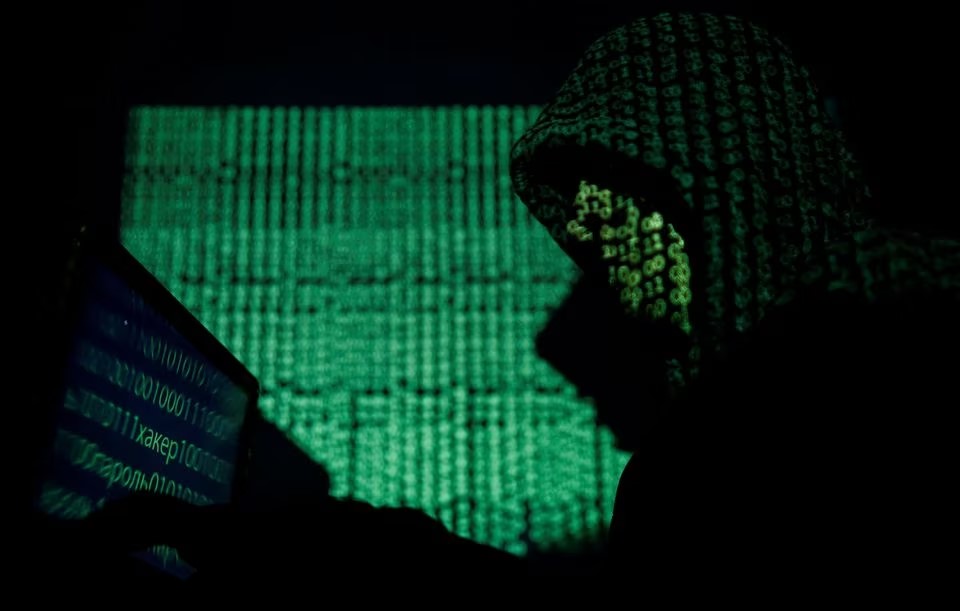
Photo: REUTERS/Kacper Pempel/Illustrative photo/Documentary photo.
The conflict between Israel and its Arab neighbors has consistently attracted the attention of the international community as well as politically motivated hackers – often referred to as hacktivists. These hackers often exploit the conflict to support their favorite side or simply to gain attention.
According to the cyber intelligence organization Recorded Future, "Dozens of victims are being targeted every day by both new and established [hacktivist] organizations."
While there aren't many examples of long-term consequences yet, these actions demonstrate how a small group of supporters can use digital tools to bring conflict into cyberspace.
To date, among similar incidents, a Hamas-backed hacking group called AnonGhost has claimed to have successfully compromised an Israeli emergency alert application, according to information on the organization's social media channels.
Another organization, AnonymousSudan, on Telegram has claimed to be continuously attacking critical Israeli infrastructure, although it has provided no evidence for these claims.
According to cybersecurity analysts, more than 100 Israeli websites were vandalized or temporarily disrupted through distributed denial-of-service (DDoS) attacks, a type of attack carried out by sending a series of forged request packets to a website.
In an email, Jerusalem Post editor-in-chief Avi Mayer stated: “The attackers took down our website for an extended period of time over the past several days. This is a blatant attack on press freedom.”
Israel's Emergency Response Team (CERT) did not respond to requests for comment.
It is often very difficult to verify the accuracy of claims made by hacktivist groups. This situation also occurred during the early stages of the conflict between Russia and Ukraine, when a volunteer hacking group supporting Ukraine claimed responsibility for a series of attacks targeting Russian websites and online services.
Analysts anticipate that cyber intelligence activities will continue to be conducted behind the scenes.
Last week, Microsoft released a report that a Gaza-based hacking group called Storm-1133 had stepped up its cyber espionage activities targeting Israeli telecommunications, defense, and energy companies earlier this year.
The report states: "We assess that this organization is operating to advance the interests of Hamas."
Omri Segev Moyal, Director General of the Profero cybersecurity office in Israel, said his office had detected some activity linked to an Iranian spy organization called Muddy Water and intrusion attempts that may be connected to Molerats, an organization that researchers believe also works for Hamas.
He said that Molerats' operations "ceased immediately after the airstrikes began."
Nguyen Quang Minh (according to Reuters)
Source







![[Photo] President Luong Cuong presides over the welcoming ceremony for the President of the European Council, Antonio Costa.](/_next/image?url=https%3A%2F%2Fvphoto.vietnam.vn%2Fthumb%2F1200x675%2Fvietnam%2Fresource%2FIMAGE%2F2026%2F01%2F29%2F1769662707713_ndo_br_1-jpg.webp&w=3840&q=75)















































































![OCOP during Tet season: [Article 4] Elevating local products](/_next/image?url=https%3A%2F%2Fvphoto.vietnam.vn%2Fthumb%2F402x226%2Fvietnam%2Fresource%2FIMAGE%2F2026%2F01%2F29%2F1769652810578_2935-z6982071462129_649e82db06fb2f2ea701388b1f5f5b0b-173322_176-185229-202804_457.jpeg&w=3840&q=75)




![OCOP during Tet season: [Part 3] Ultra-thin rice paper takes off.](/_next/image?url=https%3A%2F%2Fvphoto.vietnam.vn%2Fthumb%2F402x226%2Fvietnam%2Fresource%2FIMAGE%2F2026%2F01%2F28%2F1769562783429_004-194121_651-081010.jpeg&w=3840&q=75)

![OCOP during Tet season: [Part 2] Hoa Thanh incense village glows red.](/_next/image?url=https%3A%2F%2Fvphoto.vietnam.vn%2Fthumb%2F402x226%2Fvietnam%2Fresource%2FIMAGE%2F2026%2F01%2F27%2F1769480573807_505139049_683408031333867_2820052735775418136_n-180643_808-092229.jpeg&w=3840&q=75)





Comment (0)